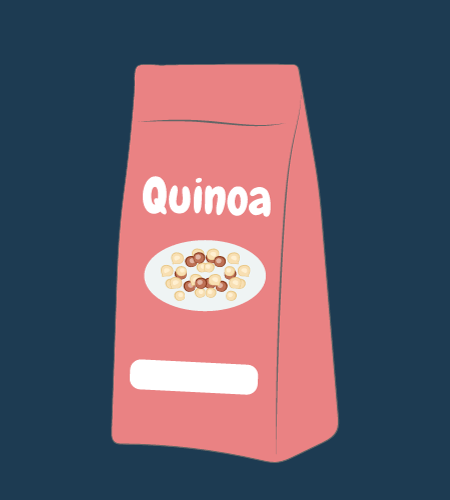National Quinoa Day is celebrated on January 16 every year. This special day honors the ancient superfood known as quinoa, which is packed with dietary fiber and protein. As a versatile and gluten-free alternative to grains like wheat, quinoa has been embraced by health enthusiasts globally. Its journey from the high plains of South America to kitchens around the world is a testament to its nutritional value and adaptability. On National Quinoa Day, we celebrate not only the seed itself but also its potential to contribute to global health and food security.
Quinoa has seen a significant rise in popularity due to its numerous health benefits. This day prompts us to explore new ways to incorporate this superfood into our diets. Whether you’re a quinoa aficionado or just curious about this nutritious seed, National Quinoa Day provides the perfect opportunity to learn more, taste more, and share the goodness of quinoa with others.
History of National Quinoa Day
Quinoa’s history is as rich as its nutritional profile. This remarkable seed was first cultivated by the Andean people over 7,000 years ago, thriving in the harsh conditions of the Bolivian Altiplano. The Inca civilization, which later emerged in the region, considered quinoa to be sacred, referring to it as the “mother of all grains.” Despite the Spanish conquest, which sought to suppress its cultivation, quinoa persisted as a vital staple for the Andean people.
The modern revival of quinoa began in the 1970s, reaching the United States by the 1980s. The Bolivian government’s initiative to export quinoa sparked a renewed interest in its cultivation and consumption. The United Nations’ declaration of 2013 as the International Year of Quinoa highlighted its role in combating hunger and malnutrition. Today, quinoa is celebrated for its resilience and versatility, symbolizing a bridge between traditional agricultural practices and contemporary dietary trends.
Why is National Quinoa Day important?
- Nutritional Powerhouse
Quinoa is a complete protein containing all nine essential amino acids, making it an excellent plant-based protein source. It’s also high in fiber, which aids in digestion and can contribute to a feeling of fullness, helping with weight management.
- Gluten-Free Alternative
For those with celiac disease or gluten sensitivity, quinoa offers a safe and nutritious alternative to wheat-based products. It can be used to make gluten-free bread, pasta, and other dishes without compromising on taste or nutrition.
- Cultural Significance
Celebrating National Quinoa Day also means acknowledging the cultural heritage of the Andean people. Their ancient practices of quinoa cultivation are an integral part of human agricultural history.
- Biodiversity and Resilience
Quinoa exhibits remarkable resilience, able to grow in diverse climates and soil conditions. Its biodiversity is crucial in a world facing climate change, as it ensures food security for future generations.
- Economic Impact
As demand for quinoa has grown internationally, it has become an important economic crop for countries like Bolivia and Peru. This has helped improve the livelihoods of many farmers in these regions.
- Culinary Versatility
Quinoa is incredibly versatile in the kitchen. It can be used in salads, soups, main dishes, and even desserts, making it easy to incorporate into any meal.
- Health and Wellbeing
The health benefits of quinoa extend beyond nutrition. Its anti-inflammatory properties and high mineral content, including magnesium and iron, contribute to overall health and wellbeing.
How to celebrate National Quinoa Day?
- Experiment with Quinoa Recipes
Use National Quinoa Day as an opportunity to get creative in the kitchen. Try making a warm quinoa breakfast bowl or a hearty quinoa and vegetable stir-fry. The possibilities are endless.
- Share Quinoa Dishes
Celebrate by hosting a quinoa-themed potluck with friends and family. It’s a great way to share different quinoa recipes and enjoy the company of others.
- Educate Yourself and Others
Take some time to read about quinoa’s history, nutritional benefits, and its impact on Andean culture. Share what you learn with others to spread awareness.
- Support Quinoa Farmers
Purchase fair-trade or directly sourced quinoa to support the farmers who grow this superfood, ensuring they receive a fair price for their labor.
- Incorporate Quinoa into Your Diet
If you’re new to quinoa, start by substituting it for rice or pasta in one of your favorite dishes. It’s an easy way to introduce this healthy seed into your meals.
- Grow Your Own Quinoa
If you have a garden, try growing your own quinoa. It’s a rewarding experience and brings you closer to the process of food production.
- Spread the Word on Social Media
Use the hashtag #NationalQuinoaDay to share your quinoa dishes, recipes, and facts about this superfood on social media platforms.
National Quinoa Day FAQs
Is quinoa a carb or a protein?
Quinoa is considered both a carb and a protein. It contains carbohydrates but also provides a significant amount of complete protein.
Can quinoa help with weight loss?
Yes, quinoa can aid in weight loss due to its high fiber content, which promotes satiety and reduces overall calorie intake.
How should I store quinoa?
Store uncooked quinoa in a cool, dry place inside an airtight container. Cooked quinoa should be refrigerated and can last up to a week.
National Quinoa Day Dates Table
| Year | Date | Day |
|---|---|---|
| 2026 | January 16 | Friday |
| 2027 | January 16 | Saturday |
| 2028 | January 16 | Sunday |
| 2029 | January 16 | Tuesday |
| 2030 | January 16 | Wednesday |
Reviewed by HolidayToday Staff
Also on this day
Subscribe to our newsletter and never miss a holiday again!



